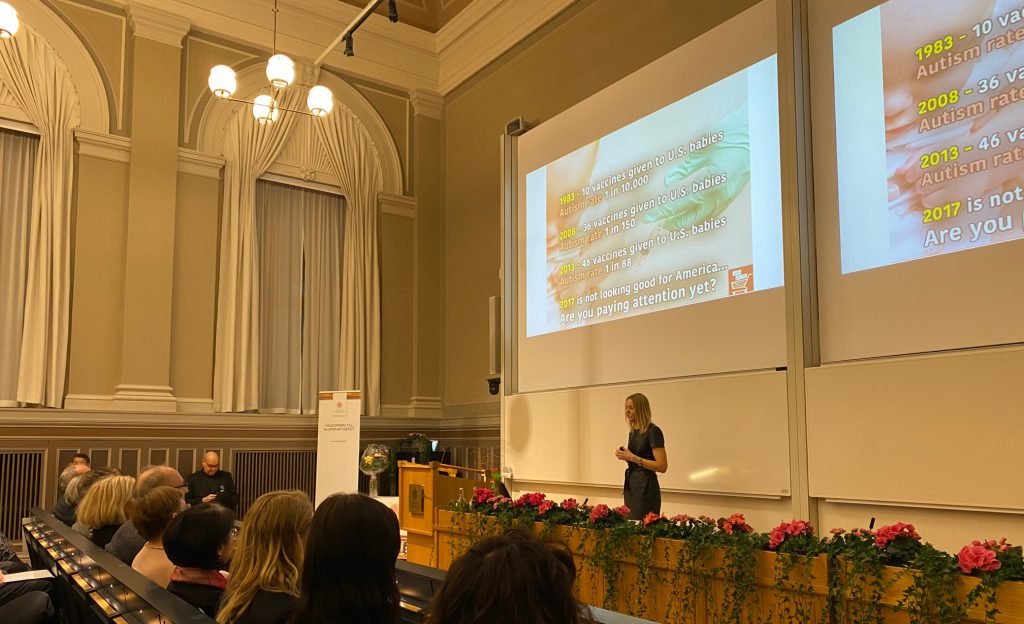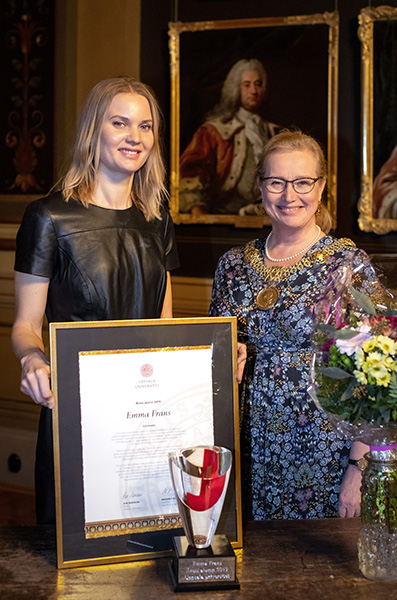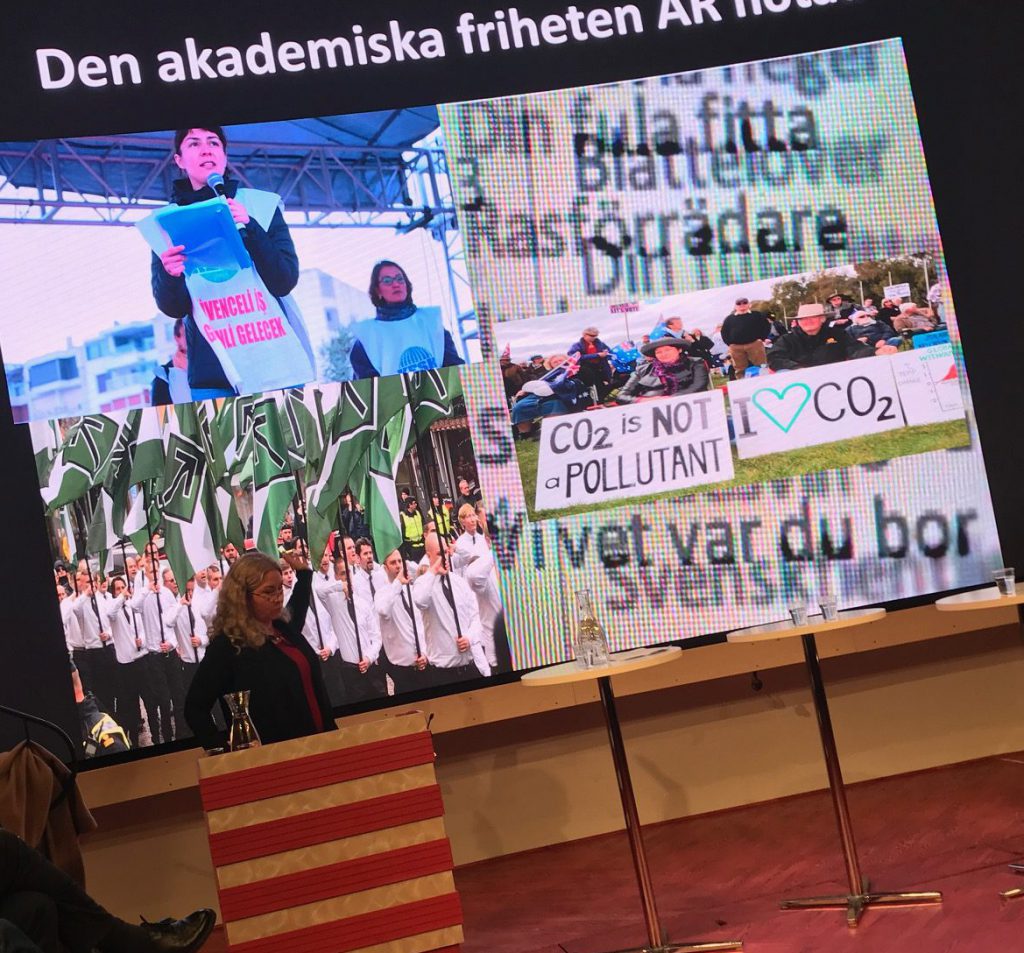Two very well-attended events were held at the University yesterday. We were happy to welcome Alumnus of the Year Emma Frans, who gave an inspiring lecture in the evening in the University Main Building. She called on us to take greater responsibility for fighting disinformation and fake news, a responsibility I am sure we all feel but perhaps do not always find time to exercise in our everyday lives. When false information spreads about health risks, for example, or about science more generally, we end up with decision-makers and the general public alike acting on an uncertain or, in the worst case, a completely wrong basis. When that happens, society has embarked on a dangerous course.


Emma Frans gave many telling examples of how false information spreads via social channels in particular, and she pointed out how serious it is that this type of information spreads more widely and more quickly than more factual articles or rebuttals. Simple, confident messages are preferred to more nuanced and complex ones. A media landscape like this favours colourful personalities rather than objective experts. However, a society in which the general public has more confidence in influencers than in politics, official information and free media – the very foundations of our democracy – needs more people in the public sphere with thorough knowledge and a talent for communication. And these are precisely Emma Frans’s qualifications. We hope to keep in touch with our latest Alumnus of the Year and will of course bear in mind the advice she gave: to support researchers who champion science in social media even in the face of hostility.

The subject of confidence in science also tied in with the Vice-Chancellor’s seminar that attracted record numbers to a discussion on the freedom of speech in academia earlier in the afternoon. There was a lively discussion, following excellent introductory remarks by Folke Tersman, Sten Widmalm, Maria Eriksson Baaz, Frida Gommel and Mikael Ruotsi. We concluded that we in the academic community must defend the space for difficult discussions on controversial subjects and that the best way for us to do this is by collegial action to bolster our collective self-confidence and by talking more about dilemmas and perceived threats in our everyday experience. It is also appropriate to ask where the most serious threat comes from and to devote energy to that. In this connection, we would like to recall that the freedom of education has a weak legal basis in Sweden today. We have pointed this out more than once, most recently in our budget input to the government, and here we can all join forces to demand change.
